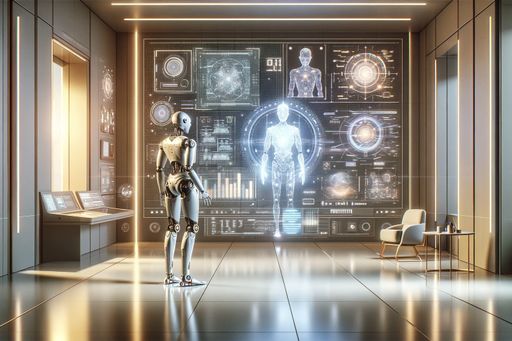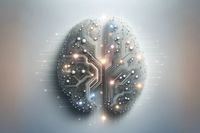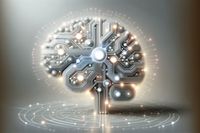Doctors Say AI is Revolutionizing Heart Health
Learn how advancements in artificial intelligence are changing the game for treating heart disease.

Advancements in AI Bring Hope for Treating Heart Disease
Heart disease is the number one killer of Americans, responsible for one in five deaths. The shortage of cardiologists makes it difficult to screen for heart problems effectively. However, some doctors believe that advancements in artificial intelligence (AI) can bring hope for saving lives. At the Mayo Clinic in Rochester, Minnesota, AI is being used to screen for heart problems and potentially prevent heart-related deaths.
Tragic heart-related incidents, such as the recent case of Reed Ryan, who went into cardiac arrest following a team workout and passed away from an undetected genetic heart condition, highlight the need for improved screening methods. AI technology can help detect a wide range of heart conditions that may lead to sudden cardiac arrest, providing early intervention and treatment for at-risk individuals. This is especially important for athletes and young people who may have undetected heart conditions.
By using AI-enabled digital stethoscopes and mobile devices to pick up electrocardiograms (ECGs), doctors can identify heart conditions more accurately and efficiently than the traditional method of using wired ECG machines. These AI systems can analyze ECG recordings and flag certain heart issues for further review, ultimately cutting down on costs and improving the speed and accuracy of screenings.
Artificial Intelligence as a Game Changer in Treating Heart Conditions
Dr. Michael J. Ackerman, a cardiologist at the Mayo Clinic, believes that artificial intelligence is a "game changer" in the treatment of heart conditions. By training AI systems to scan and analyze ECG recordings, doctors can detect various heart conditions that may lead to sudden cardiac arrest. For example, AI can identify weak heart pumps, which can lead to heart failure if left untreated.
The Mayo Clinic's AI technology screens a patient's ECG and flags any potential heart issues for secondary review. This not only helps make up for the shortage of cardiologists but also cuts down on screening costs. AI-enabled ECGs can provide early detection and intervention, potentially saving lives by preventing sudden cardiac arrest. Dr. Ackerman estimates that with further advancements, AI could be widely used in the next three years.
Furthermore, AI technology is not limited to ECG analysis. Mayo Clinic and other institutions have developed AI systems that can detect heart conditions through various means, such as mobile devices and digital stethoscopes. This opens up new possibilities for early detection and intervention, significantly improving the outcomes for patients with heart disease.
The Future of Heart Health and AI
The introduction of artificial intelligence in the field of cardiology holds great promise for the future of heart health. As the number one killer of Americans, heart disease requires innovative and efficient screening methods to save lives. AI-enabled systems can play a crucial role in early detection and intervention, particularly for at-risk individuals such as athletes and young people with undetected heart conditions.
With the shortage of cardiologists and the increasing number of cardiac-related deaths, AI provides a solution that can detect problems faster and more accurately. By streamlining the screening process and flagging potential heart issues, AI technology dismisses the majority of cases, allowing doctors to focus on critical cases that require immediate attention. This not only saves time but also improves the accuracy and effectiveness of screenings.
The future of AI in heart health looks promising, with ongoing research and development in various medical institutions. From AI-enhanced ECGs to mobile devices and digital stethoscopes, AI technologies are revolutionizing how heart conditions are diagnosed and treated. With further advancements and FDA approvals, AI could become a standard tool in the fight against heart disease, potentially saving countless lives.



